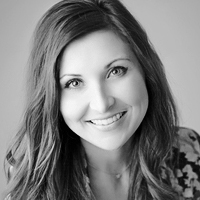This text-based course is a transcript of the webinar, "Differential Treatment of School-Age Children Who Stutter," presented by Megan Scott Dacus, M.S., CCC-SLP.
>> Megan Scott Dacus: I am a full-time practicing clinician. I have my CCCs and have worked with children who stutter for about four years in two different private clinics. I am speaking to you from my academic knowledge, as well as clinical experience, which I think is important to note. First I want to spend some time describing the school-age child specifically. What does literature tell us about the school-age child and why do we need to know that for the school-age child who stutters? Then specifically what does research and literature tell us about the school-age clinician? What are some specific things we need to know and implement about ourselves as we work with this specific school-age population?
As we move further into treatment, I want to spend some time discussing treating overt stuttering behavior which is the stuttered speech behavior that we can hear and things that we can see. Most commonly this is what is associated when you say a stuttering disorder. But I also want to address some covert stuttering behavior. I want to talk about school-age children and their attitudes and emotions. These do not cause stuttering, but they can definitely contribute to stuttering, exacerbate stuttering, and also make a big difference in the progress made in therapy so it is important to include attitudes and emotions.
Then I would like to discuss some contributing factors – factors in the environment, at home, with peers – those things that can contribute to dysfluency and ways that we can manage them. All of this information is based in research and I have provided a list of resources.
The School-age Child: What the Literature Shows
Let's begin by talking about the school-age child and some things that are important to remember that are specific to this situation (Chmela, 2012; Rycus & Hughes, 1998; Piaget, 1979).

